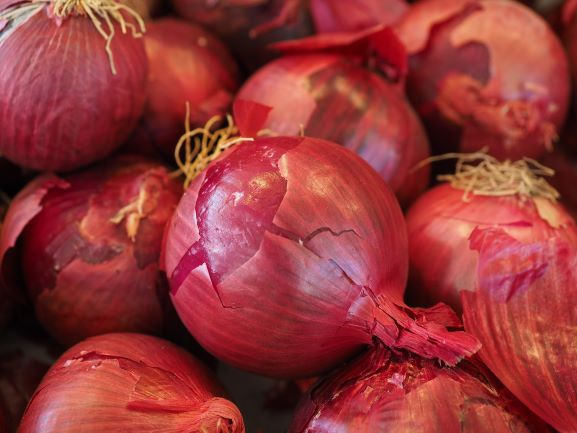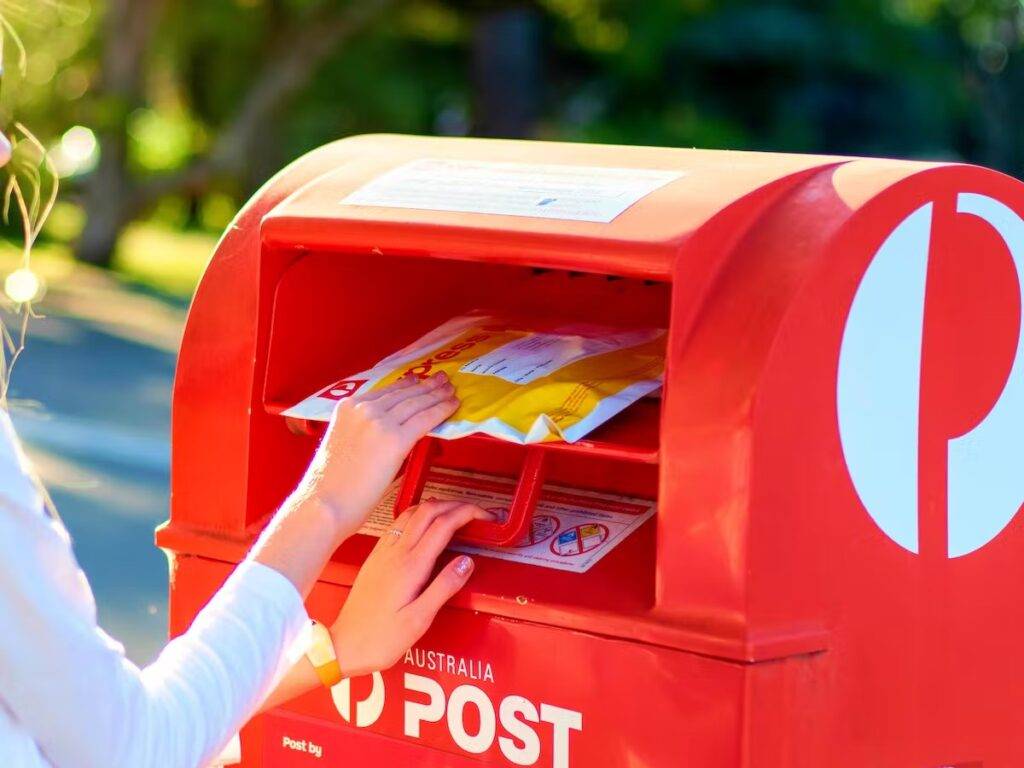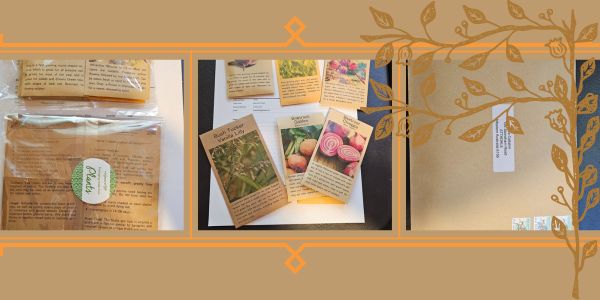Onion Red Ripper
$4.95
Allium Cepa
- Seed Count 100
- Salad Onion
- Annual
Out of stock
Email when stock available
Description
Onion Red Ripper is a lovely red ringed, globed shaped salad onion that grows well in cool climates. They like a good, well-drained soil and a sunny position taking about 200 days to mature. They are harvested when the stems are yellow.
With a mild flavour perfect for salads, toasted sandwiches and general cooking, they are a great all-rounder. They are very decorative when sliced across the bulb to reveal which and red rings, so are ideal fresh in salads or cooked with pasta.
One of the most popular crops for the gardener, onions are a huge must for any gardener with a vegetable patch, as they are so versatile and can be used for a variety of different things. Once you have had home grown onions, you will find it hard to buy from the supermarket again.
| Method: Sow seedlings | Soil Temp: 8°C - 30°C |
| Cool Mountain: Feb - Oct | Position: Full sun |
| Arid: Feb - Aug | Row Spacing: 10cm apart |
| Temperate: Mar - Aug | Planting Depth: 5 mm |
| Sub Tropical: Not Recommended | Harvest: 200 days |
| Tropical: Not Recommended | Plant Height: 25cm |
🌱 Sowing: In Trays vs. Direct in the Garden
In Trays (Recommended for most regions)
Starting onions in trays gives you a head start and allows for better control over spacing later on.
Best time to sow:
- Temperate & Cool zones: May–August
- Subtropical zones: April–June
- Arid zones: April–July
How to sow:
- Use a quality seed-raising mix.
- Sow seeds 2mm deep.
- Keep trays in a sunny, sheltered spot or greenhouse.
- Thin seedlings once they’re a few centimetres tall, or leave a few to snip as microgreens.
🌼 Tip: Onions are slow starters. Be patient—it may take 10–14 days for germination.
Direct Sowing
Direct sowing is possible in mild climates with well-prepared, weed-free soil.
- Sow shallowly, 0.5–1 cm deep.
- Thin seedlings to 10–15 cm apart as they grow.
- Keep beds moist during germination.
🌿 My advice? Go with trays first if you’re dealing with clay soil, slugs, or heavy rain. You’ll get stronger seedlings and better spacing at transplant time.
🧱 Soil and Position
Soil Type:
- Onions prefer free-draining, fertile soil with a neutral pH (6.0–7.0).
- Add well-rotted compost or aged manure a few weeks before planting.
Position:
- Full sun is essential for strong bulb development.
- Avoid beds that have recently grown garlic, shallots, or leeks (allium rotation is important to reduce disease risk).
🌼 Gardener’s note: Raised beds or mounded rows are great for drainage, especially in winter-wet areas.
🌿 Care and Maintenance
- Watering: Regular and consistent—don’t let them dry out or become waterlogged. Reduce watering as bulbs mature.
- Weeding: Keep the bed clean. Onions don’t like competition.
- Feeding: Light feeders—apply a liquid seaweed or fish emulsion every 2–3 weeks early on. Too much nitrogen late in the season can delay bulb formation.
🌱 Tip: Mulching with straw or sugarcane mulch keeps weeds down and moisture even.
🌼 Companion Planting Guide
| Good Companions | Why It Works |
|---|---|
| Carrots | Mutual pest protection (onions deter carrot fly) |
| Beets | Similar soil needs and growth habits |
| Lettuce | Shallow-rooted, fills space between rows |
| Chamomile | Improves onion flavour |
| Strawberries | Onions deter pests like aphids |
🚫 Avoid planting near: Peas, beans, or other legumes—onions can stunt their growth.
🌾 Harvesting
Green Onions / Spring Onions
- Harvest when leaves are 15–20 cm tall and stalks pencil-thick.
- Usually ready 8–10 weeks from sowing.
Pickling Onion
- Timing: Around 10–12 weeks after sowing, depending on variety and conditions.
- Look for bulbs that are starting to swell but are still small and firm.
- Leaves will still be upright and green (they don’t need to flop like storage onions).
Bulbing Onions
- Ready in 20–26 weeks depending on variety and growing conditions.
- Wait until the tops yellow and fall over naturally. Stop watering at this stage.
- Allow bulbs to “cure” in a dry, airy spot for 2–3 weeks before storing.
🌿 Harvest tip: Gently lift with a fork—don’t yank, or you risk bruising them.
🐛 Common Issues & Fixes
| Problem | Symptom | Fix |
|---|---|---|
| Poor bulb development | Lots of leaves, no bulb | Too much nitrogen or overcrowding—thin seedlings & avoid overfeeding late |
| Downy mildew | Pale patches, stunted growth, fuzzy spores on leaves | Improve airflow, avoid overhead watering, use organic fungicide |
| Onion thrips | Silvery streaks, curling leaves | Neem oil spray, encourage lacewings and ladybirds |
| Bolting (flowering early) | Tall central stalk with flower | Sow at the right time, protect from cold snaps |
| Rot or fungal disease | Yellowing, mushy base, or collapsed stems | Ensure well-drained soil, rotate crops, don’t overwater |
🌼 Seed Saving Guide
Saving onion seed takes patience, but it’s very doable if you let your plants go full cycle.
1. Biennial nature:
- Onions need two seasons to set seed. In the first year, they grow bulbs; in the second, they flower.
2. Selecting parent plants:
- Choose the healthiest, most typical bulbs (good shape, no disease, strong storage quality).
- Allow them to cure and store over summer.
3. Replanting:
- In autumn or early winter, replant the bulbs in prepared soil.
- The plant will flower in spring, forming beautiful umbel heads full of seeds.
4. Pollination:
- Onions are insect-pollinated and can cross with other onion varieties.
- To maintain a pure variety, only grow one type for seed or space them 1 km apart.
5. Harvesting seed:
- Wait until the flower heads turn brown and dry.
- Snip off the heads into a paper bag and dry further indoors.
- Rub heads to release seeds, winnow out chaff, and store in a cool, dry place.
🌿 Lifespan of onion seed: About 1–2 years with good viability if stored well.
🌻 Final Thoughts
Growing onions from seed might take a bit of patience, but it’s well worth the effort. Starting them off right—especially in trays—sets you up for a strong, healthy crop that stores well into the warmer months. They’re not heavy feeders, but they do need consistency and care, especially when young. And while they’re not the flashiest crop, they quietly anchor the garden and the kitchen alike.
So go on—pop a few trays in this season, keep an eye on spacing and weeds, and let your onions quietly do their thing. Before you know it, you’ll have a harvest that smells sweet and earthy, ready to lift and cure with pride. 🧅💚
Postage Charge
Orders under $30 attract a $4.95 shipping charge. Orders $30 and above have free shipping.
Order Times
Seed orders are normally dispatched within three business days. You will receive an email when seeds are mailed out.
Postage Days
Seeds are mailed out Monday to Friday at 1pm. Except for the Friday of long weekends.
Postage Times
WA 2-3 Days: SA,NT 3-5 Days: NSW, ACT, QLD, VIC: 5-7 Days
Carrier
We use Australia Post Letter Postage for the majority of orders
Not only are our seeds packed in recycled paper envelopes, we keep the theme going when we post out website orders. To protect your seeds from moisture and the letter box munchers (snails), we use a very special plastic free material made from plants. They are then put into recycled mailing envelopes. Green all the way 💚🌿





Well packaged and great information listed on the packet